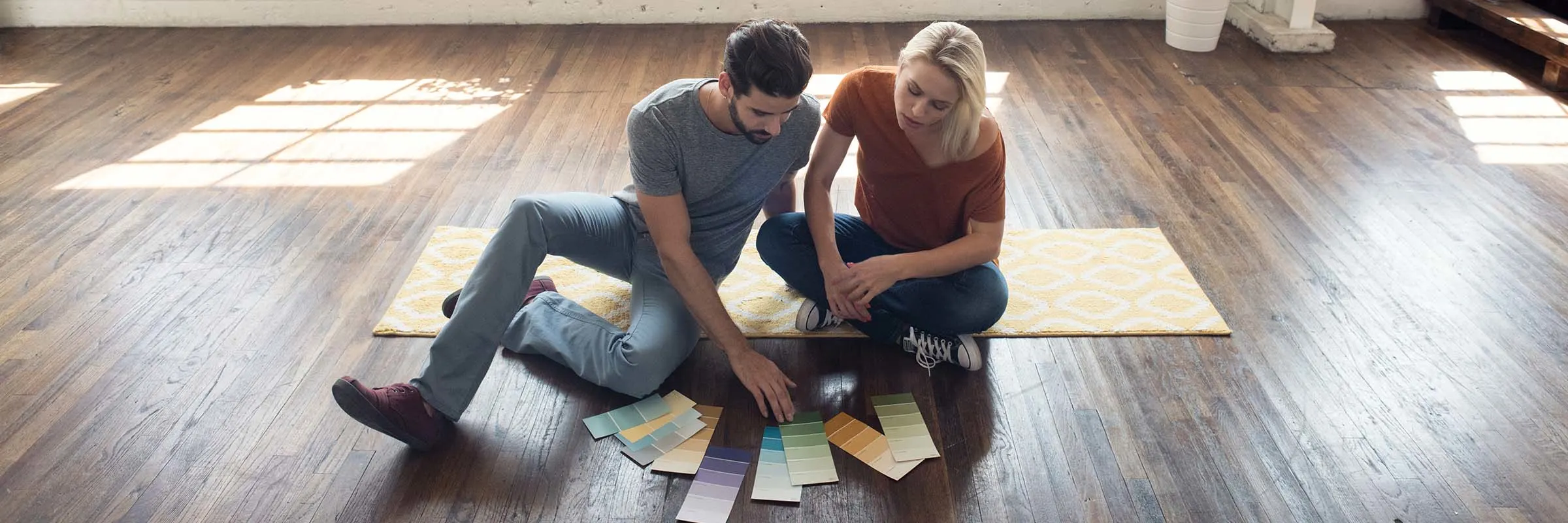Moving in together is a big step in any relationship. There’s a lot to consider as you merge your living spaces (and your lives!) — where to live, when to move, whose furniture to keep. But what happens when you both already own a home?
Big conversations—especially about finances—can feel complicated when it comes to relationships. Sharing a space, bank account, pets, kids and beyond are all aspects that clear communication can help you navigate as a couple and even bring you closer in the process. By working together, you and your partner can find the right solution for you and your two homes.
Determining what’s yours, mine and ours
First things first, set expectations from the start. Just like you might divide up chores to ensure equal responsibility in your day to day, you and your partner should approach your properties as a team. An open, honest discussion about what you both want will help to ensure a level playing field. Perhaps your home has been in the family for generations, while your partner has made many expensive customizations. Maybe one of you purchased a home within walking distance from work while the other prioritized more space or proximity to family. Whatever your priorities were when you purchased your home, if they are still meaningful to you, be clear about why you like your space and keep an open mind about your partner’s priorities.
Deciding where to live as a couple can be complicated. Once you’ve openly discussed your priorities, talk through the pros and cons of each place (these might look different for each of you). Some factors to consider could include:
Space: Is one home bigger or does it offer a yard, garage or bonus room that the other doesn’t?
Proximity: Is one home closer to friends, family or work?
Affordability: Are the payments on one home more affordable? Keep in mind things like private mortgage insurance (PMI), interest rates, insurance costs, assessment fees, special assessments and other fees that may be associated with each home.
Equity: If one of you locked in a lower interest rate or owned their home longer, the larger profit may be an incentive to sell.
Picture yourselves living out your everyday lives and consider which home best fits that lifestyle. Keep in mind, some of these factors might have additional monetary implications. For example, a larger or more centrally located home will likely gain value faster.
Read more: Should you refinance your mortgage? When it might be worth it
Make one home an investment property
Real estate can be a great way to make additional income. To save yourselves some time and stress, you and your partner may decide to move into one of your homes and rent out the other.
Keep in mind that while renting out a home generates passive income, it also requires a time investment (and likely a financial one). You could find a property management company to stage and show the home, ensure you get quality renters and collect monthly payments. Or you may choose to manage it yourself.
You’ll also need to determine if any profits from the rental income will be split or shared. You may also want to consider whether you each want to be added to the deed of your partner’s home. Consulting with a legal professional is a great first step if you’re not sure how you want to handle premarital assets like property.
Sell one home and move into the other
Rather than dealing with the details of managing a rental property, you may decide to move into one home and put the other on the market. You’ll still have to go through staging and showing the home, as well as managing offers and negotiations. It’s a time-consuming process, so you may want to talk through how you will approach the process. Will the owner of the home do all the legwork for the sale? And then, if there is a profit from the sale, will those funds be kept jointly or individually? Having these conversations early is the best way to ensure you’re on the same page.
Sell both homes and find something new together
Sometimes, starting fresh is best. You can find a home in an ideal location with the space and amenities you both want, rather than one of you trying to fit into the other’s environment. Selling both homes might also give you the financial flexibility to upgrade or build a nest egg together.
Looking for a new home can be a fun way to bond and get even more excited for your life and future together. Just keep in mind it will require more time to list both homes, find buyers, house hunt and pack.
Making the best choice, together
Considering your options for cohabitation and talking through them will benefit you and your partner in the short term, as well as throughout your future together. While working through these options can be daunting, in the end, open, honest discussions can ensure you make the right decision for both of you and your finances.



